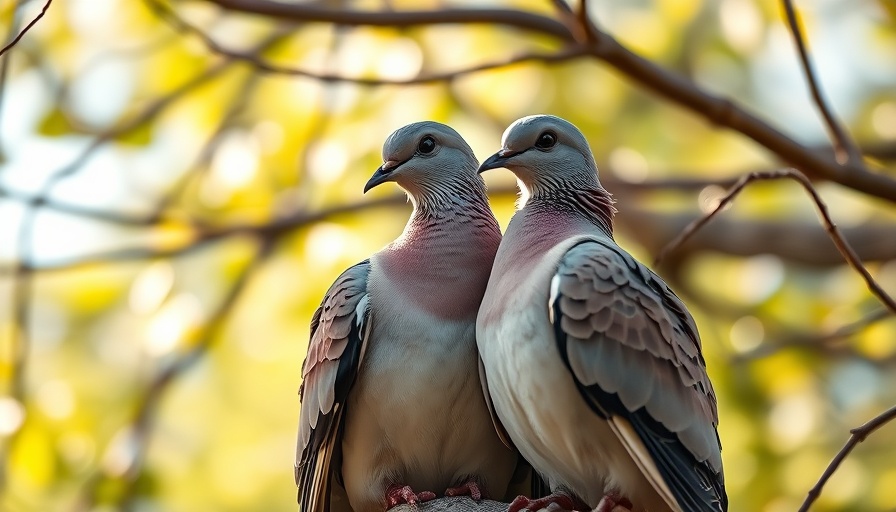
A Controversial Decision to Lift the Hunting Ban
In a decision that has sparked significant backlash from conservationists, the European Commission has lifted the hunting ban on vulnerable European turtle doves. This reversal allows EU countries, particularly in Western Europe, to reopen the hunting season for these birds, which had been paused since 2021. Barbara Herrero, a senior conservation policy officer at BirdLife Europe, expressed her disappointment, calling the move "reckless and shortsighted." This decision can be seen as a failure to uphold environmental commitments aimed at protecting endangered wildlife.
The Recovery of Turtle Dove Populations
Despite the controversial decision, it is noteworthy that the temporary hunting ban had shown positive results. Studies indicated that the turtle dove population in the Western Flyway, which includes parts of France and Italy, had begun to recover after years of decline. However, in the Central-Eastern Flyway, where bans were not strictly enforced, no such recovery was reported. This discrepancy highlights the complex dynamics of wildlife conservation and human impact on natural populations.
The Risks of Unsustainable Hunting Practices
The lifting of the ban poses several risks. Turtle doves, which are classified as vulnerable on the International Union for Conservation of Nature’s Red List, face threats from unsustainable hunting, habitat loss, and food shortages, exacerbated by intensive farming practices. Allowing hunters to kill an estimated 132,000 turtle doves across Spain, France, and Italy raises urgent questions about the sustainability of such practices and their long-term impact on this vulnerable species.
Economic Arguments for Backing Hunting
Proponents of hunting, like Alejandro Martínez of the Royal Spanish Hunting Federation, defend the practice by emphasizing its cultural and economic significance. Martínez points out that hunting contributes around €6.5 billion to the economy and supports approximately 200,000 jobs in rural communities. This perspective underscores the tension between economic interests and wildlife conservation, raising questions about how best to balance these competing priorities.
The Path Forward for Conservation
To address the ongoing challenges of turtle dove population recovery, stronger enforcement of hunting regulations and habitat protection is crucial. The European Commission’s decision hinges on monitoring survival rates and implementing effective enforcement systems, yet as BirdLife Europe has pointed out, many conditions remain unmet. Moving forward, it is vital for both policymakers and the public to advocate for more robust protections for endangered species, ensuring that conservation efforts do not stall due to conflicting interests.
Conclusion: The Call for Robust Conservation Efforts
The decision to lift the hunting ban on European turtle doves serves as a reminder of the delicate balance between human activity and wildlife preservation. As the situation unfolds, it is imperative that we engage in meaningful discussions about sustainable practices and conservation strategies to protect not just turtle doves, but all vulnerable species. With concerted efforts and strong policies in place, we can forge a path that respects both critical ecosystems and the needs of local communities.
 Add Row
Add Row  Add
Add 




Write A Comment